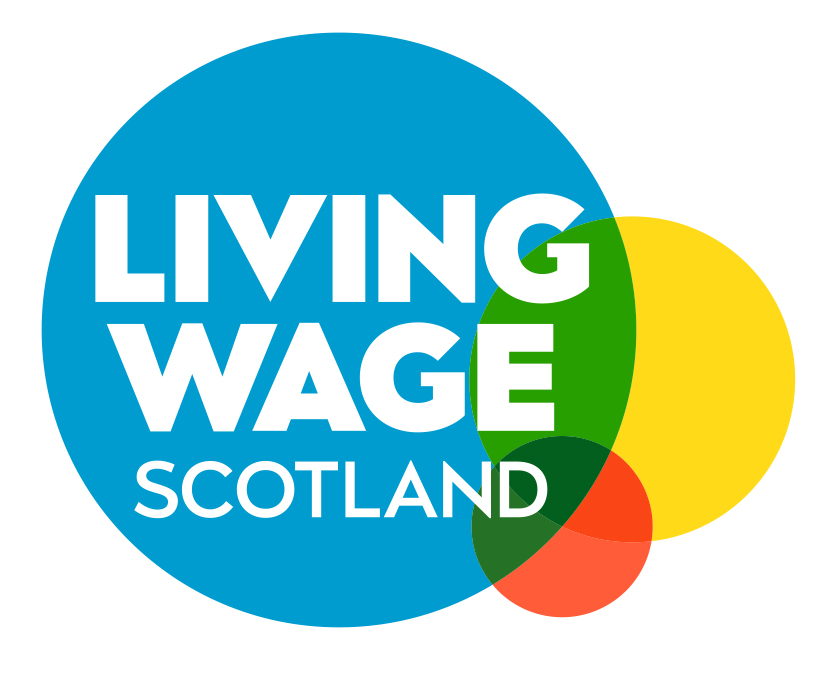By Calum Carson, Leeds University Business School
As Living Wage Week continues, it is important to talk about the role that individual employers can have on tackling poverty rates in Scotland, and to celebrate the many organisations that are already leading the way in this fight.
A less discussed aspect of poverty in Scotland (and the UK more widely) at present is the issue of in-work poverty, defined most simply as when being employed does not pay enough to be able to afford a decent standard of living. As the cost of living has continued to rise faster than legal minimum wage rates over the past twenty years this has become a larger and larger problem, to the extent that in 2019 nearly 60 per cent of people in poverty live in a working household. In Scotland alone the majority of children in poverty today have at least one adult in their household in work, and in 2018 in-work poverty in Scotland had grown to the highest rate seen since the turn of the century.
These figures challenge the assumption that the best route out of poverty is to simply “get a job”, and are often obscured by regular news headlines about the record number of people in work: so long as national minimum wage rates are set below the cost of living in-work poverty will always be a problem in Scotland.
Fortunately, there are a wealth of employers committed to challenging this state of affairs across the nation, ensuring that their workers are protected from the current limitations of public policy. One of the most simple and effective ways of doing this is through voluntarily paying employees the “real Living Wage”.
The real Living Wage is a higher rate of pay than the current legal minimum wage rates of £7.70 an hour for under 25’s and £8.21 for over 25’s under the “National Living Wage”, set instead at £9.30 an hour (and £10.55 in London) to more accurately reflect the high cost of living in Britain today. These rates are independently calculated and are designed to ensure that those being paid the Living Wage are protected from experiencing the effects of in-work poverty and are increased annually to ensure that they keep up with rising prices and bills.
Since 2014 Living Wage Scotland have been highlighting the importance of employers paying a Living Wage to their workers, and the central importance of this in challenging poverty rates in Scotland. Employers who pay it are publicly recognised and celebrated for their commitment to ensuring that their workforces are not in poverty, and are rightfully proud of their voluntary efforts in going above and beyond the legal minimum in respecting and protecting their employees. In just five years in operation the number of organisations paying it is over 1,600 and rising (approximately 30% of the UK total), a testament to both the campaign itself and the level of passion there is from Scottish employers for challenging current in-work poverty rates.
Organisations who have become accredited Living Wage Employers in Scotland hail from all sectors of the economy, ranging from large multi-site firms to small whisky distilleries, and from the public, private, and third sectors. Employers talk of paying the Living Wage as a “sign of respect” to its employees so that they can “afford to live”, and a belief that businesses have a responsibility to ensure that their workers are paid appropriately. Anwar from Heart of Midlothian FC told Living Wage Scotland “receiving the real Living Wage makes me feel a sense of value from those that run the club. To other employers, I would say invest in your workforce and you’ll get a whole lot more in return.”
It is not only workers that benefit from a Living Wage, however, but those that employ them too. Testimony from employers who have become Living Wage Employers have drawn attention to the sometimes unexpected business benefits that result from raising their worker’s wages to Living Wage rates, ranging from boosts to their public image to falls in retention and rises in the quality of candidates at interview stage: the Aberdeen-based brewery Brewdog, for example, saw staff turnover on their retail sites fall 40 per cent upon accreditation. Academic research from Cardiff University has reinforced these insights, with an overwhelming 93 per cent of employers reporting business benefits from paying a Living Wage to their employees. Paying the Living Wage, then, makes both moral and business sense for organisations.
For 2019 there are two new dimensions to these efforts, with this summer seeing the launch of both the “Living Hours” campaign and the “Living Wage Places” project. The Living Hours Standard is designed to tackle the issue of workers not having a consistent number of hours on a weekly basis to afford a decent standard of living, and encourages employers to commit to providing their employees with a guaranteed number of hours each week alongside being paid a Living Wage.
Living Wage Places, by contrast, is dedicated to recognising and celebrating those geographical areas that are doing more to expand Living Wage accreditation. From Living Wage Buildings and Zones to Towns, Cities, Boroughs and Regions, these are the places where communities and businesses are working together to tackle low pay within their localities.
Perth-based employer SSE are taking the lead in launching and committing to Living Hours standards across Scotland and the UK, arguing that “a growing movement of employers signing up to a combination of the real Living Wage and Living Hours has the potential to make a large difference to our communities and our economy”: in other words, decent work standards alongside decent wages.
Scottish employers are also leading the way in the establishment of Living Wage Places, with Dundee having been officially decreed the UK’s first “Living Wage City”. This involves an alliance of prominent Dundee-based employers working together to promote wider adoption of the Living Wage and Living Hours across the city, with plans in place to double the number of workers covered by Living Wage accreditation in Dundee over the next three years. And in another first for Scotland, Glenrothes in Fife has just become the UK’s first “Living Wage Town,” as part of a wider aspiration from Fife Council to become a Living Wage region.
Individual employers have an important role to play in challenging and combating poverty across Scotland, and committing to a Living Wage, guaranteeing Living Hours, and joining efforts to establish Living Wage Places are all vital aspects of that. To all employers reading this and considering getting involved in these efforts, do please get in touch with Living Wage Scotland.

